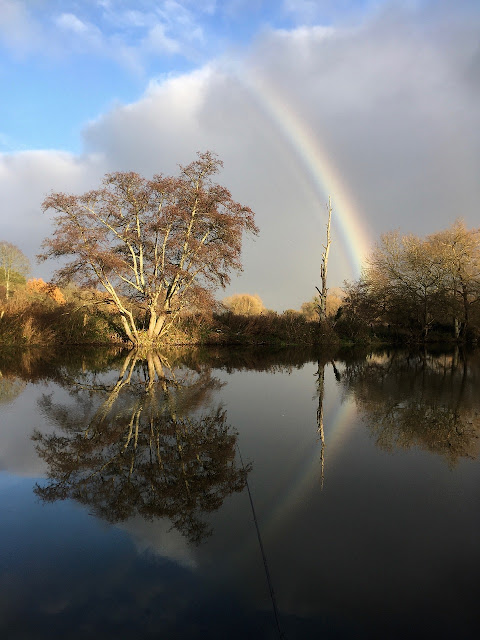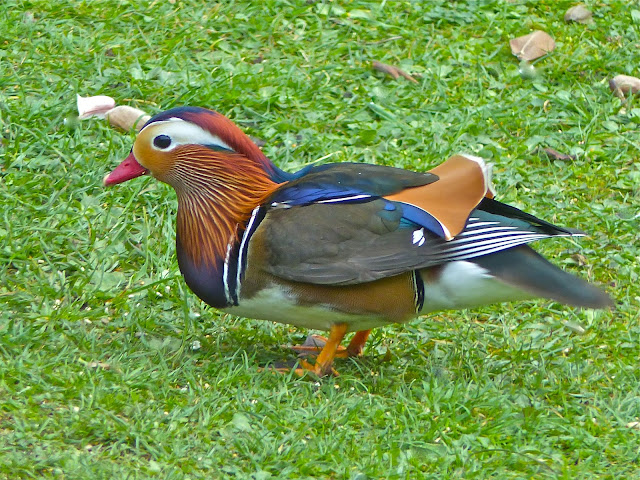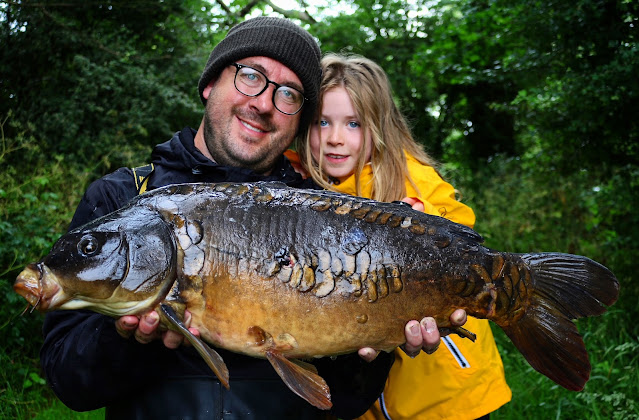SPRING HAS SPRUNG
“Oh let them be left, wildness and wet.
Long live the weeds and the wilderness yet”
Poet: Gerald Manley Hopkins
Water is the blood of life. We can live without gold, but we die without water.
But isn’t it a relief when the rain stops, the sun returns and life in our garden is full of hope for the future.
And isn’t hope so important to us all, the belief that our world will get better when life is so awful for so many and global warming and wars threaten our very existence.
However, we all have some treasured images of the good times stored away in our hard drive brains and reminding ourselves of those happy moments makes us smile, especially when winter returns with a yellow warning vengeance and outdoor plans are on hold. So for me, writing is the antidote when forced indoors, either by winters beauty or as now. It's raining again!
I love all the seasons for the variety they provide, not least winter when there’s time to prepare the garden for spring and the glorious days when tulips burst into life, creating a kaleidoscope of colour.
My wife Sue and I marvel at the skills of growers that create such exquisite artistic details in their tulips and narcissi, their scents too. Ours this year came from Dutch maestro Peter Nyssen.But many growers provide magic too. How does such beauty come out of a bulb hardly the size of a golf ball? Simply magic.
They’ve been hidden away, growing all winter while the rains fell incessantly and our local rivers flooded, though even that created an opportunity, so long as you don’t live on a flood plain. How do planners allow this to happen?
Seeing our local Dorest Stour flood vast swathes of water meadow is awesome, nature showing its power, though admiring it might become more difficult as extreme weather events increase due to the climate crisis. Luckily we live on that far hill.
Raging rivers proved a problem for us fishers but I love a challenge and despite wet feet, I caught a few fine fish from our local Dorset Stour and Hampshire Avon.
Struggling in this water world of beauty makes me humble and helps me to appreciate the wildness of it all.
We often wonder what we can do to help ameliorate the climate crisis and wetting our gardens will certainly help, so getting the spade out and digging - a lot, we created a wetland garden.
We are fortunate to have a small stream running through our patch, so by damming it in several places we have created six ponds and a marshy area for frogs, newts, grass snakes and ducks.
And by wetting the garden, we are not only ameliorating the risks of flooding downstream but sequestering carbon to reduce global warming. We are honorary beavers! Mud, mud, glorious mud - and the egrets flew in as soon as the pond re-filled with water.
Creating wetland habitats provides homes for wildlife of course and we’ve loved the sunny, spring days when the dragonflies and damsels return, along with several species of bees, butterflies and birds, even the exotic looking mandarin ducks.
The beautiful demoiselle and golden ringed dragonflies delight us by being attracted to our ponds and streams, though amazingly, this golden ringed beauty was snatched spectacularly the next day right in front of our eyes by a hobby ... an OMG moment!
Songbirds flock in too, but how does this diminutive chiffchaff weighing around 7grams, [that’s less than a 50p coin], fly all the way to Africa for the winter and back? And hearing it in the garden for the first time is a moment of magic, it’s song announcing the arrival of spring.This one took offence at its reflection in our window and became a head-banger for three days as it tried to drive the imagined reflected competitor away. Eventually it adjusted its attitude and territory but never stopped ‘chiffchaffing’ in its onomatopoeic way. A delightful bird.
Another of our African migrants is eagerly awaited by us each year, our local ospreys, returning to their nest in Poole Harbour from their winter quarters in West Africa's Senegal.
Our pair, identified by their leg rings CJ7 and O22 can be viewed on the ‘Birds of Poole Harbour’ webcams and my spring tradition is to watch the nest live every dawn from six am or earlier in anticipation of their arrival … and I was very happy to see them arrive at sunrise on March 25th ... though even greater luck was to follow.
I’d never seen a bird lay an egg before and what appeared to be her contractions attracted my attention, so I was glued to the screen until she sat up to reveal the first egg of the year, laid by our star lady CJ7 on April 15th.She also treated me by revealing a rare fourth egg early in the morning of April 25th, they usually lay only two or three.
So sitting watching a computer screen with a cuppa at silly o’clock has its own rewards.
Hopefully they’ll all hatch and provide our family with a reminder of those happy days when Sue, Katie and Peter lived up in Scotland for two summers in the late ’70’s as I made a film on ospreys for the RSPB. It was a perfect place for our children to grow up and they remember fondly those wonderful days filled with a great variety of wildlife adventures.
Back to the present day now, and I don’t need to remind you that it was a wet winter, though all that water had it’s benefits, for our garden trees and shrubs have grown better than ever this spring, the magnolias, rhododendrons, azaleas and wisteria providing a joyous sight for winter saddened eyes.
We believe in 'No Mow May', and June and July ... so our wildflower meadow provides a sea of flower throughout the summer for all our bees and butterflies.
No doubt the lack of frosts and all the rainfall down here in the south has helped our oaks, birches and ash trees to grow really well this year and as each one reaches ever higher for the sky, it’s as if our little cottage is sinking ever deeper into a woodland wonderland.
And as the spring sap rises, so does my compunction to go fishing, the ancient hunting genes strong, even though I never harm or kill my quarry.
Being a passionate angler takes me closer to nature, to be at peace with wildlife and if I get lucky, I even get to touch it.
And catching any tench in this lake is an inspiring challenge because there aren’t big numbers of them living here and in thirty acres of weedy water, they take some finding. But that is the very essence of fishing, the mystery of the unknown, the quandary of where to cast your bait and what tasty morsels to attract and tempt them to eat.
And when after hours of waiting, a tench finally rushes off with the bait, the shot of adrenalin and excitement takes your breath away, the gentle wildlife watching overcome by anxiety and excitement as battle commences.
Tench are powerful fish, full of muscle, with big fins to enable them to escape and if they do, the feeling of loss leaves me shaken in disbelief and if it was a big one, the disappointment lasts a lifetime, and don’t laugh because it is true, the ‘ones that got away’ are always the most memorable.
And don’t believe those ideas that you haven’t got the patience to be a fisher because while waiting for a bite there is never a dull moment, there's so much to see, to enjoy and to hear, the calls of bitterns and reed warblers, the circling buzzards and red kites, the dragonflies and damsels.
And if you win the battle and land your tench, what a beautiful creature to behold, it’s golden yellow and green scales and red eyes, yours to admire for a brief moment before releasing it unharmed, swimming off gently into it’s watery home, leaving memories to treasure.I’m actually writing beside this lake in the Cotswold Water Park as the rain hammers down, resisting the temptation to fish and so avoid getting a soaking. But I appreciate the chance to share these experiences with you while sat so close to nature.
In the middle of last night I was woken by a cuckoo, calling as it flew over my camper on its return from Africa’s far off Congo forests. Singing in the dark, he was obviously keen to crack on with his breeding season.
Woken again at 3am, two mute swans thrashed in the River Thames beside me, driving off an otter that threatened its sole surviving cygnet. The otter had killed and eaten a large carp at dawn yesterday, close to where a sit writing, a sad end to a lovely creature. But otters have to eat too and in their own way, they are remarkable and I love 'em, though when they raid our garden ponds, I wish they wouldn't trash our carefully managed wildlife habitat. This one visited our garden ponds on a frosty morning in February, a privilege but a mixed blessing too.
Back to the now, writing beside this Cotswold lake at dawn, a group of cranes are bugling evocatively in the nearby marshes while a cuckoo is tolling its call loudly and relentlessly from a willow just above my head and as I listen intently I become aware that they aren’t saying cuckoo at all but ‘Blackpool’! Next time you get a chance to listen, I think you’ll agree.
Out in the lake, tench swirl and above them, swifts returning from central Africa trawl the skies with wide open beaks and a carp leaps clear of the water as if in celebration of a new day.
Then a sudden surprise as my good friend Chris Burgess brought his family to meet me, including his young daughter Ezmay, seen here with her Dad with one of the lakes monster carp.
Ezmay is famous for showing me how easy it is to catch big tench from this lake by landing a monster tench of 9lb10ozs, bigger than any I've ever managed, so it's a joy to see a young lady proving there's no limit to what children can achieve if encouraged by loving parents.
What a fish! It sure makes me smile.
Dad took this happy snap of Ezmay and I beside the lake and it was indeed a happy reminder that friendships are far more important and rewarding than catching fish, even big ones.
And as I finish writing this story on May 28th, the news is out that three of the four osprey eggs have hatched, with the last one hopefully scrabbling out of the egg to join it's sibblings tomorrow. So there's lots of wild days in the future to look forward to and be happy.
Ain’t natures springtime wonderful.





























































